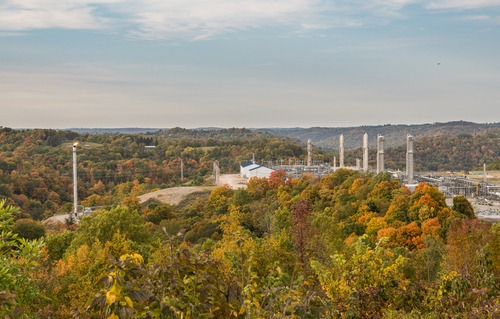
A Pennsylvania tax on natural gas development generated $234 million last year, the Pennsylvania Public Utility Commission said Friday.
The funds, which will be returned to communities across the state, represent the second-largest amount ever generated. Pennsylvania county and municipal governments will receive the majority of the funding, which can be used on a wide range of projects, including infrastructure, emergency response, community, and environmental programs. The impact fee has generated $2.3 billion since its creation in 2012.
“Generating $2.3 billion in essential funding for state and local governments across all 67 counties, Pennsylvania’s unique natural gas tax is an effective policy that yields impactful results,” Marcellus Shale Coalition president David Callahan said. “The nearly 60 percent increase in this year’s distribution is directly related to heightened activity levels and the commodity price environment, underscoring the importance of policies that encourage domestic natural gas development, transportation, and use. Our members continue to be focused on responsibly developing clean, abundant Pennsylvania natural gas, which is even more important today in keeping America and our allies energy secure.”
Enacted as part of Act 13 in 2021, the natural gas development tax generates annual revenue tied directly to drilling activity in the state. The funds also support key statewide regulatory and environmental conservation programs, as well as going to each of the state’s 67 counties. More than $129 million will be distributed to the county and local governments, while $105 million will go to statewide programs and regulatory oversight.
Statewide programs funded through the impact fee include $86,030,934 for the Marcellus Legacy Fund, $8,860,241 for the County Conservation Districts and State Conservation Commission, and $6,000,000 for the Pennsylvania Department of Environmental Protection.
“Our industry provides much more than clean and abundant natural gas. Good-paying jobs, economic prosperity, and – as demonstrated by the impact fee – sustained community investment programs are all made possible through responsible Pennsylvania natural gas development,” Callahan said.